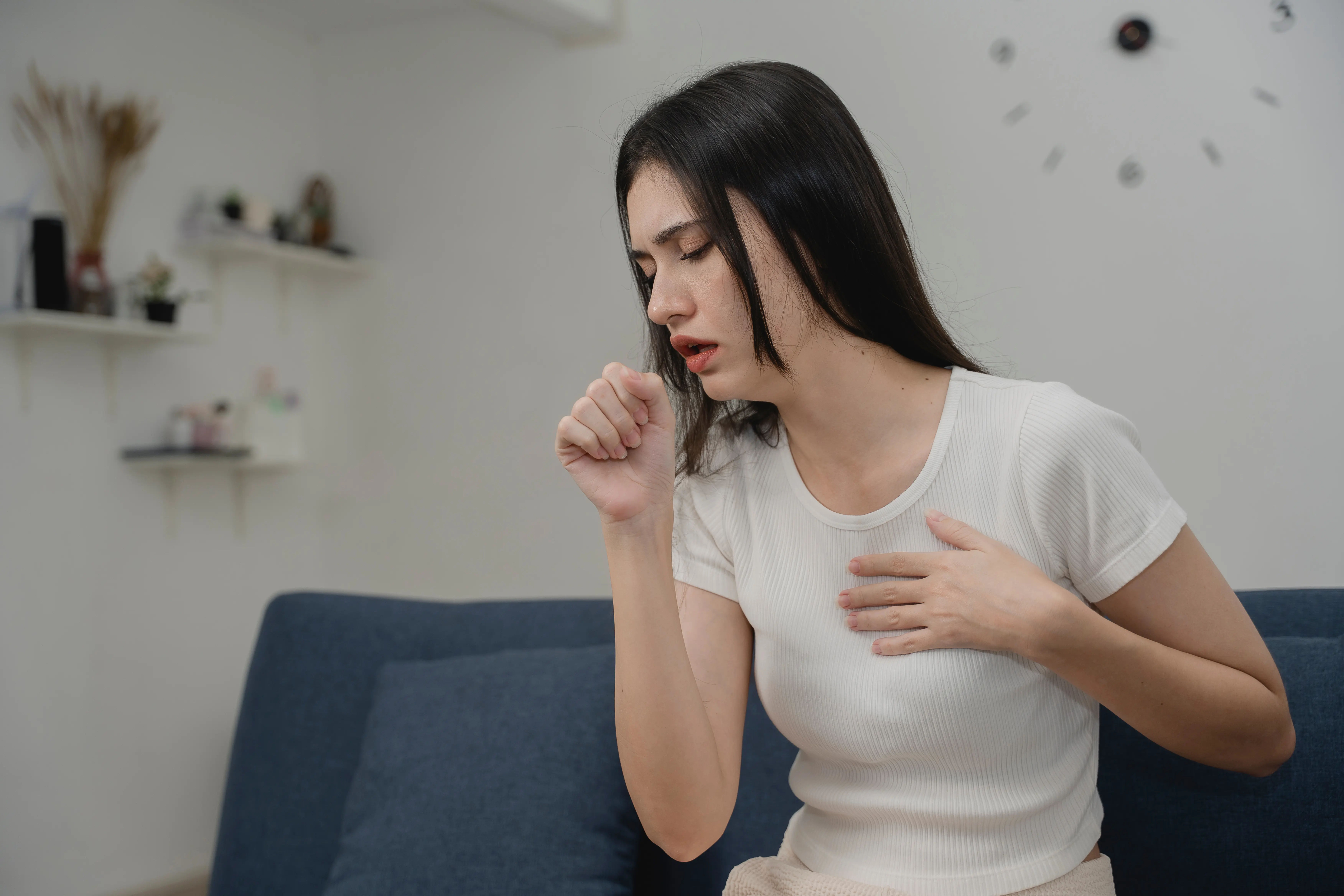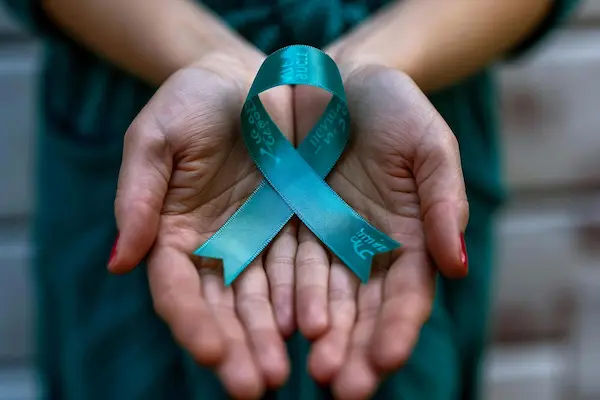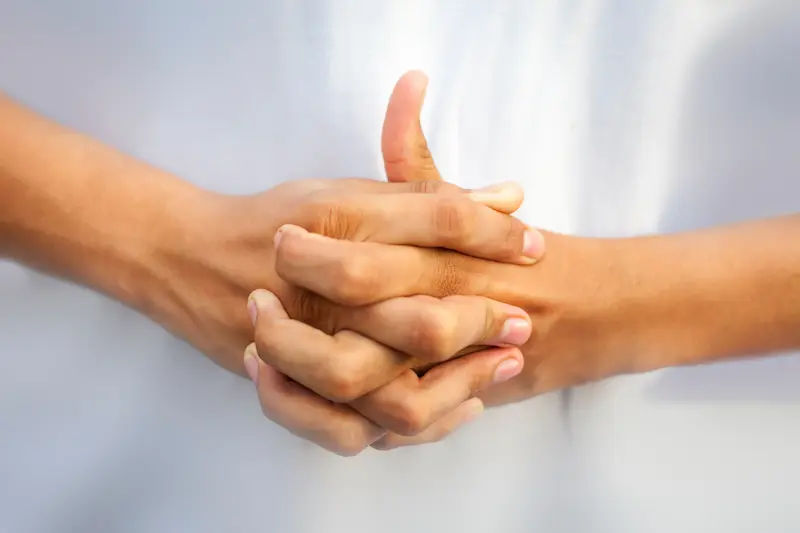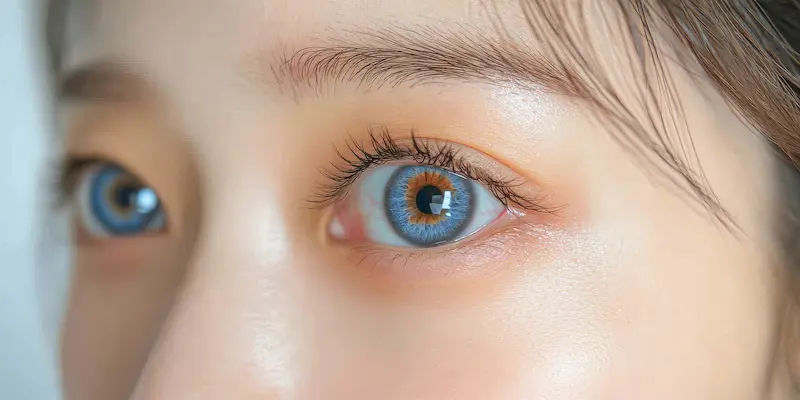Understanding Chemotherapy Prevention And Side Effects
Learn about chemotherapy, its role in cancer treatment, preventive measures to reduce side effects, and how to manage them effectively. A comprehensive guide to navigating chemotherapy with confidence and care.


Facing a chemotherapy diagnosis can be overwhelming, filled with questions about the process and its impact on your life. While it's a powerful weapon against cancer, the journey is often associated with challenging side effects. But what if you could better understand not just what to expect, but also how to proactively manage it? This article demystifies chemotherapy, moving beyond fear to focus on empowerment. We'll clarify the nuanced concept of "prevention"—both in terms of cancer risk and mitigating treatment side effects. Then, we'll provide a comprehensive, practical guide to the most common side effects, offering evidence-based strategies for management and highlighting the incredible support modern medicine offers. Our goal is to equip you with knowledge, turning anxiety into action and fostering a sense of control during your treatment.
What Do We Mean by "Prevention"?
The word "prevention" in the context of chemotherapy can mean three very different things. Understanding this distinction is crucial for setting realistic expectations and having informed conversations with your healthcare team.
Primary Prevention: Reducing Cancer Risk
Primary prevention refers to actions taken to reduce the risk of developing cancer in the first place. This is not about chemotherapy itself. Chemotherapy is a treatment, not a preventive vaccine. Primary prevention involves lifestyle choices like avoiding tobacco, limiting alcohol, maintaining a healthy weight, eating a diet rich in fruits and vegetables, protecting your skin from the sun, and getting vaccinated against cancer-causing viruses like HPV. These measures work to stop cancer before it starts.
Secondary Prevention: Preventing Cancer Recurrence
This is where chemotherapy plays a central role. The primary goal of adjuvant chemotherapy (given after surgery or radiation) is secondary prevention—to eliminate any remaining microscopic cancer cells to prevent the cancer from coming back (recurrence). In this sense, chemotherapy is a preventive measure against the return of the disease, significantly improving long-term survival rates for many cancer types.
Preventing and Managing Treatment Side Effects
This is the most common interpretation of "prevention" for patients undergoing treatment. Today, oncologists actively work to prevent side effects before they start, not just manage them after they appear. This proactive approach includes pre-medications like anti-nausea drugs (antiemetics), steroids to reduce inflammation, and cooling caps to minimize hair loss. Managing chemo side effects effectively is a critical part of the treatment plan, ensuring patients can tolerate full doses and maintain a better quality of life.
Why Does Chemotherapy Cause Side Effects?
Chemotherapy drugs are designed to target and kill rapidly dividing cells, a hallmark of cancer. However, the body also contains healthy cells that divide quickly. Chemotherapy cannot perfectly distinguish between cancerous and healthy cells, leading to collateral damage. This is the root cause of most side effects.
Rapidly Dividing Healthy Cells Impacted:
- Hair Follicles: Damage leads to hair loss (alopecia).
- Bone Marrow: Where blood cells are produced. Damage can lead to anemia (low red blood cells), neutropenia (low white blood cells, increasing infection risk), and thrombocytopenia (low platelets, affecting clotting).
- Cells in the Mouth, Digestive Tract, and Reproductive System: Damage leads to mouth sores, nausea, vomiting, diarrhea, and fertility issues.
Understanding this "why" can make the side effects feel less random and frightening. It's a sign that the medication is actively working throughout your body. The good news is that these healthy cells are remarkably resilient and typically begin to repair themselves after treatment ends.
Common Chemotherapy Side Effects and Proactive Management
Here are some common chemotherapy side effects and proactive management tips:
Immediate and Short-Term Side Effects
- Fatigue and Managing Your Energy Levels
Cancer-related fatigue is the most common side effect, affecting up to 96% of patients. It's not ordinary tiredness; it's a profound exhaustion that isn't relieved by rest. To manage it, practice pacing: balance activity with rest. Short, gentle walks can actually boost energy, while listening to your body and napping when needed is equally important. Prioritize tasks and don't hesitate to ask for help with chores. - Nausea and Vomiting: Modern Solutions
Thankfully, preventing nausea during chemo has advanced dramatically. Doctors now prescribe a regimen of anti-nausea medications (e.g., ondansetron, aprepitant) to be taken before, during, and after infusion. Dietary tips can also help: eat small, bland meals throughout the day (ginger tea, crackers, toast), avoid strong food odors, and stay hydrated with water or electrolyte drinks. - Hair Loss (Alopecia) and Scalp Care
Not all chemo causes hair loss, but it's a well-known effect. It usually begins 2-4 weeks after the first treatment. Using a cooling cap can significantly reduce the risk by constricting blood vessels in the scalp, limiting the amount of drug that reaches hair follicles. If hair loss occurs, be gentle: use a soft brush and mild shampoo. Many find empowerment in choosing wigs, scarves, or rocking a bald look. Remember, hair loss is almost always temporary.
Consult Top Specialists
Mid-to-Long-Term Side Effects
- Weakened Immune System (Neutropenia) and Infection Prevention
This is a serious side effect. A low white blood cell count leaves you vulnerable to infections. Preventing infection during chemotherapy is a top priority. Practice meticulous hand hygiene, avoid crowds and sick people, cook meat thoroughly, and wash fruits and vegetables well. Your oncologist will monitor your blood counts closely. If you develop a fever of 100.4°F (38°C) or higher, it is a medical emergency, and you must contact your doctor immediately. - "Chemo Brain" - Cognitive Changes
Many patients report fogginess, memory lapses, and trouble concentrating during and after treatment. To manage chemo brain, use tools like calendars, lists, and phone reminders. Get plenty of sleep, as rest is crucial for memory consolidation. Gentle brain exercises like puzzles or reading can also be beneficial. Be patient with yourself and inform your family and colleagues so they can offer support. - Nerve Damage (Peripheral Neuropathy)
Some drugs can cause tingling, burning, numbness, or pain in the hands and feet. Report these symptoms to your doctor immediately, as they may adjust the dose. Physical therapy can help maintain strength and balance. Be extra cautious to avoid burns (test water with your elbow) and injuries, as numbness can make you unaware of damage.
Holistic Strategies for Resilience
Here are some holistic strategies for resilience in chemotherapy:
The Role of Nutrition During Chemotherapy
Eating well is a form of medicine. Focus on what to eat during chemotherapy to maintain strength and support your body's repair. Prioritize protein (lean meats, eggs, beans, lentils) for cell repair and energy. Stay hydrated. If mouth sores are a problem, opt for soft, moist foods like smoothies, soups, and mashed potatoes. A registered dietitian who specializes in oncology can provide personalized advice.
Safe Physical Activity and Rest
While rest is vital, studies show that regular, moderate exercise like walking, yoga, or swimming can reduce fatigue, improve mood, and enhance overall well-being. The key is to listen to your body and avoid overexertion. Discuss any new exercise plan with your oncologist to ensure it's safe for you.
Mental and Emotional Wellbeing
The psychological impact of cancer is profound. Seek support through counseling, support groups, or talking with friends and family. Mindfulness, meditation, and gentle hobbies can significantly reduce stress and anxiety. Your mental health is just as important as your physical health. If you feel persistent sadness or anxiety, don't suffer in silence; professional help from a therapist can make a world of difference.
Conclusion
Understanding chemotherapy transforms it from a mysterious, frightening process into a manageable journey. While side effects are a challenging reality, they are not insurmountable. Modern oncology offers an impressive arsenal of tools to prevent and manage them, allowing you to focus on your healing. Remember, you are an active participant in your care. By communicating openly with your medical team, adopting supportive lifestyle practices, and leaning on your network, you can navigate this path with resilience and strength. If you have specific concerns about managing chemo side effects or your treatment plan, always consult your oncologist. For ongoing support and to discuss any persistent symptoms, you can easily consult a doctor online with Apollo24|7 for convenient and expert guidance.
Consult Top Specialists
Consult Top Specialists

Dr. Amit Choraria
Surgical Oncologist
18 Years • MBBS, MS (Surgery) Fellow, Surgical Oncology, Tata Medical Center (FSO) Fellow, European Board of Surgery (Surgical Oncology) (FEBS) Fellow, Minimal Access Surgery (FMAS) Fellow, Indian Association of Gastrointestinal Endosurgeons (FIAGES) UICC Fellow, Royal Marsden NHS, London, UK Visiting Scholar, Plastic Reconstructive Surgery, CGMH, Taiwan Fellow, Robotic Surgical Oncology, Vattikuti Foundation, USA
Kolkata
Apollo Multispeciality Hospitals , Kolkata, Kolkata
(75+ Patients)

Dr.sanchayan Mandal
Medical Oncologist
17 Years • MBBS, DrNB( MEDICAL ONCOLOGY), DNB (RADIOTHERAPY),ECMO. PDCR. ASCO
Kolkata
Dr. Sanchayan Mandal Oncology Clinic, Kolkata

Dr. Sanchayan Mandal
Medical Oncologist
17 Years • MBBS, DrNB( MEDICAL ONCOLOGY), DNB (RADIOTHERAPY),ECMO. PDCR. ASCO
Kolkata
MCR SUPER SPECIALITY POLY CLINIC & PATHOLOGY, Kolkata
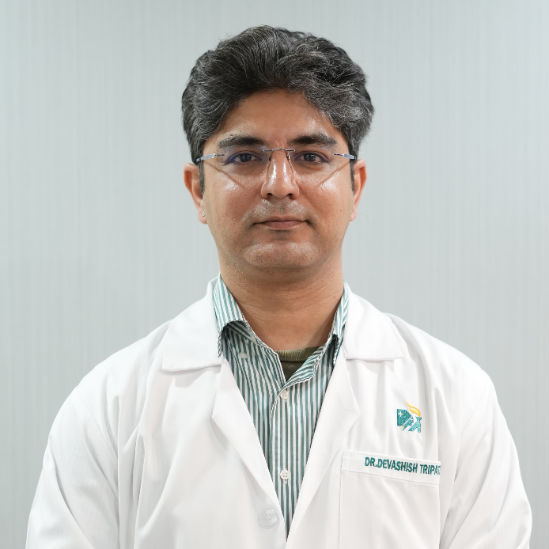
Dr Devashish Tripathi
Radiation Specialist Oncologist
20 Years • MBBS, PLAB, MRCP (UK)- General Medicine, FRCR (Oncology), Certificate of Completion of Training (CCT)- Clinical Oncology
Delhi
Apollo Hospitals Indraprastha, Delhi
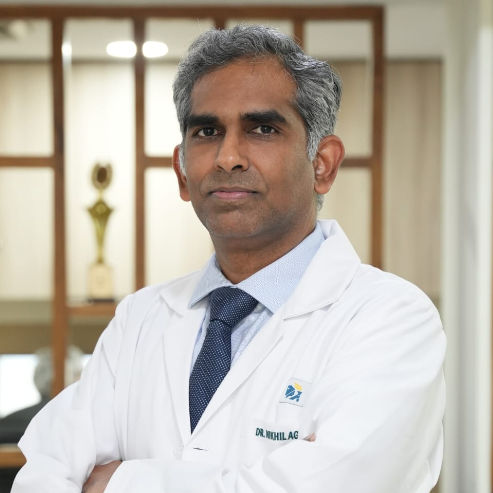
Dr. Nikhil Agrawal
Surgical Oncologist
18 Years • MBBS, MS, MCh (AIIMS, New Delhi)
Delhi
Apollo Hospitals Indraprastha, Delhi
Consult Top Specialists

Dr. Amit Choraria
Surgical Oncologist
18 Years • MBBS, MS (Surgery) Fellow, Surgical Oncology, Tata Medical Center (FSO) Fellow, European Board of Surgery (Surgical Oncology) (FEBS) Fellow, Minimal Access Surgery (FMAS) Fellow, Indian Association of Gastrointestinal Endosurgeons (FIAGES) UICC Fellow, Royal Marsden NHS, London, UK Visiting Scholar, Plastic Reconstructive Surgery, CGMH, Taiwan Fellow, Robotic Surgical Oncology, Vattikuti Foundation, USA
Kolkata
Apollo Multispeciality Hospitals , Kolkata, Kolkata
(75+ Patients)

Dr.sanchayan Mandal
Medical Oncologist
17 Years • MBBS, DrNB( MEDICAL ONCOLOGY), DNB (RADIOTHERAPY),ECMO. PDCR. ASCO
Kolkata
Dr. Sanchayan Mandal Oncology Clinic, Kolkata

Dr. Sanchayan Mandal
Medical Oncologist
17 Years • MBBS, DrNB( MEDICAL ONCOLOGY), DNB (RADIOTHERAPY),ECMO. PDCR. ASCO
Kolkata
MCR SUPER SPECIALITY POLY CLINIC & PATHOLOGY, Kolkata

Dr Devashish Tripathi
Radiation Specialist Oncologist
20 Years • MBBS, PLAB, MRCP (UK)- General Medicine, FRCR (Oncology), Certificate of Completion of Training (CCT)- Clinical Oncology
Delhi
Apollo Hospitals Indraprastha, Delhi

Dr. Nikhil Agrawal
Surgical Oncologist
18 Years • MBBS, MS, MCh (AIIMS, New Delhi)
Delhi
Apollo Hospitals Indraprastha, Delhi
More articles from General Medical Consultation
Frequently Asked Questions
Can you completely prevent hair loss during chemotherapy?
While not always 100% effective, cooling caps (scalp hypothermia) can significantly reduce or prevent hair loss for some patients and certain types of chemotherapy. Their success depends on the specific drugs and dosages used. Discuss this option with your oncologist before starting treatment.
How long after chemotherapy do side effects last?
It varies. Some side effects, like nausea, fade within days to weeks after treatment ends. Others, like fatigue and neuropathy, can persist for months or longer ('long-term side effects'). Your body needs time to recover and repair healthy cells.
Are there any natural remedies for managing chemo side effects?
Some can be helpful, but always consult your doctor first as some supplements can interfere with treatment. Common supportive practices include ginger for nausea, meditation for stress, and acupuncture for pain and neuropathy. These should complement, not replace, medical advice.
Is it safe to be around children and pets during chemotherapy?
Generally, yes. However, for 48-72 hours after treatment, your body may excrete small amounts of the drugs through bodily fluids. It's advised to be extra cautious: flush the toilet twice, wash hands thoroughly, and have another person clean up any pet accidents or vomit.
What should I do if I get a fever during chemotherapy?
A fever of 100.4°F (38°C) or higher is an oncologic emergency because it signals a potential infection your weakened immune system cannot fight. Do not wait. Contact your oncologist immediately or go to the nearest emergency room, informing them you are on chemotherapy.
